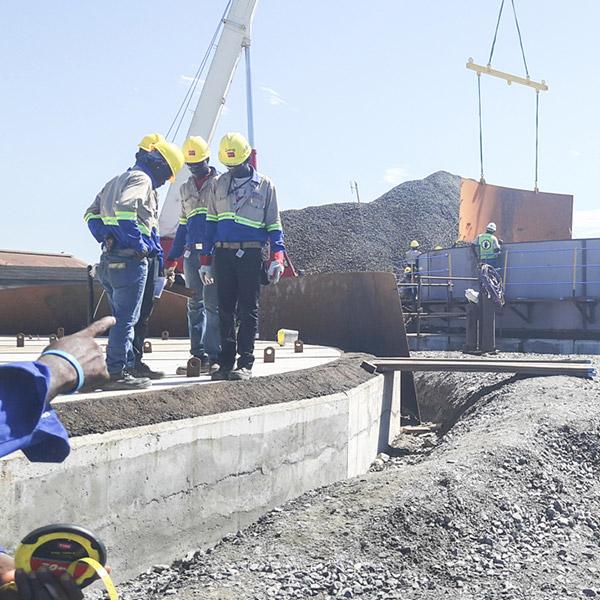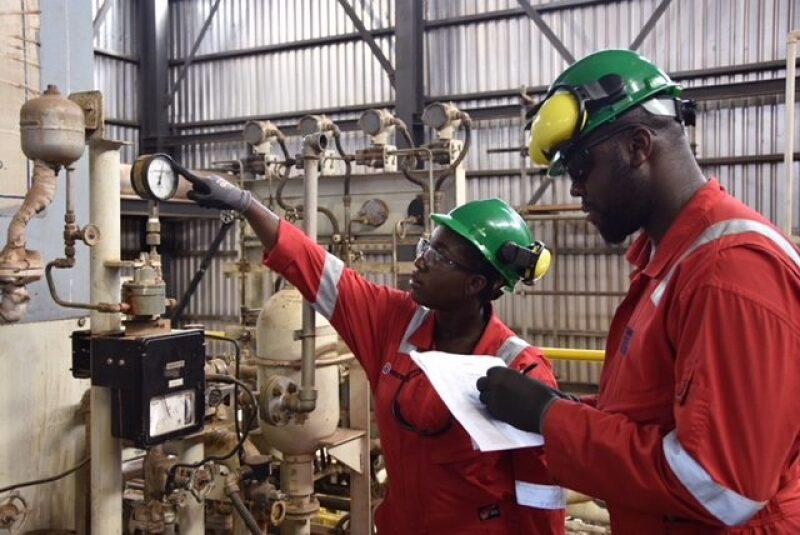Explore Our Bill Payment Services:

- Salary And Allowance
- Engineers Salary
- Ghana
Salary And Allowance Structure Civil Engineering In Ghana
Civil engineering is one of the most respected professions in Ghana, and for good reason. From bridges and highways to dams, airports, and urban housing projects, civil engineers are the masterminds turning blueprints into reality. Without them, the dream of industrial growth and urban development would be impossible.
But let’s be honest—beyond the prestige, most people are equally interested in what the career pays. How much does a civil engineer really earn in Ghana? What allowances and benefits are attached to the role? And how does pay change depending on your level of experience?
This in-depth blog post breaks it all down. We’ll explore salaries from entry-level to executive roles, highlight typical allowances, and examine factors that influence compensation. By the end, you’ll have a full picture of what to expect—and how to position yourself for higher earnings.
Salary Breakdown by Experience Level
Like most professions, civil engineering salaries in Ghana grow with experience, responsibility, and specialization. Let’s go through the ladder.
Entry-Level (Fresh Graduates)
Fresh out of university and often just after completing national service, entry-level civil engineers typically earn between GHS 2,500 and GHS 5,000 per month. That adds up to about GHS 30,000–60,000 annually.
At this stage, pay depends heavily on the hiring company, the graduate’s academic record, and whether they have any internship or project experience. Those working in major cities such as Accra or Takoradi often earn at the higher end due to cost-of-living adjustments.
Junior Engineers (1–3 Years of Experience)
Once engineers gain some experience handling smaller projects or supporting senior colleagues, salaries rise to around GHS 5,000–8,000 monthly (or GHS 60,000–96,000 annually).
Junior engineers who specialize in areas like structural, geotechnical, or water resources engineering may also earn more than their peers. Professional certifications can further boost these figures.
Mid-Level Engineers (3–7 Years of Experience)
By this point, civil engineers often take on supervisory roles and manage sections of projects. Salaries typically range from GHS 8,000 to GHS 15,000 per month, translating into GHS 96,000–180,000 annually.
Employers begin to value not just technical know-how but also project management skills, leadership abilities, and professional registration with Ghana’s engineering associations.
Senior Engineers and Project Managers (7–10+ Years of Experience)
At senior levels, engineers may lead entire projects or teams, overseeing budgets, schedules, and client interactions. Salaries climb to GHS 15,000–30,000 per month (roughly GHS 180,000–360,000 per year).
Those working with multinational construction firms, government-backed mega-projects, or specialized consultancies can earn even more.
Executive-Level Engineers and Consultants
At the very top of the pyramid are directors, senior consultants, and executives with decades of experience. Compensation easily exceeds GHS 30,000 per month, with annual earnings well above GHS 360,000.
These professionals often combine technical mastery with business acumen, handling contracts worth millions of cedis. They may also earn additional income through consultancy and advisory services.
Allowances and Benefits: Beyond the Base Salary
One of the most important aspects of compensation in Ghana is the allowance structure, which significantly boosts take-home pay. Here are some of the most common:
Housing or Rent Allowance
Because housing in cities like Accra can be expensive, many employers provide housing stipends or accommodation facilities. This is especially common for senior engineers and those on long-term site projects.
Transport Allowance
Civil engineers often travel frequently for site supervision. To support this, companies provide transport allowances, fuel stipends, or even company vehicles.
Health Insurance
Medical insurance is another attractive benefit. While entry-level engineers may receive only partial coverage, senior engineers usually enjoy full health insurance for themselves and sometimes their families.
Performance Bonuses
Performance bonuses vary widely but are often tied to successful project completion, company profits, or individual targets. For mid- to senior-level engineers, these bonuses can significantly increase yearly earnings.
Paid Leave
Most companies offer paid leave—covering annual vacation, sick leave, and sometimes family responsibility leave. This adds value even though it doesn’t show directly in the salary slip.
Retirement Benefits
Multinational companies and structured local firms usually contribute to provident or pension funds, helping engineers prepare for retirement.
Key Factors That Influence Pay
Not every civil engineer in Ghana earns the same. Several factors influence salaries:
-
Education & Certifications – Engineers with postgraduate degrees (Master’s or PhD) or international certifications (such as PMP or PRINCE2) often earn higher salaries.
-
Industry/Sector – Private sector firms, especially those tied to oil, mining, or large-scale infrastructure, pay more than government roles.
-
Project Complexity – Engineers working on mega-projects, such as highways, dams, or airports, generally earn higher wages due to the scale of responsibility.
-
Location – Engineers in cities like Accra and Kumasi earn more than those in smaller towns, partly to offset higher living costs.
-
Experience – Simply put, the more years of experience, the higher the pay.
Real-World Salary Snapshots
Actual salary reports help paint a clearer picture:
-
A mid-level civil engineer in Accra reportedly earns around GHS 160,000 annually, broken down into GHS 85,000 base salary plus GHS 75,000 allowances and bonuses.
-
Some lower reports for the same bracket list GHS 34,000 annually, which likely reflects smaller firms or underreporting.
-
Entry-level roles average GHS 60,000 per year, while mid-career engineers average around GHS 80,000 annually plus benefits worth about GHS 10,000.
-
Senior engineers (7–9 years of experience) can make anywhere between GHS 177,000–207,000 annually, depending on their role and company.
It’s also worth noting that annual salary increases in Ghana average 5% per year, though engineers in construction and infrastructure sectors may see slightly higher growth rates.
Compensation Summary Table
| Experience Level | Monthly Base Salary (GHS) | Annual Base (GHS) | Typical Allowances & Benefits | Estimated Annual CTC (GHS) |
|---|---|---|---|---|
| Entry-Level (0–1 yr) | 2,500–5,000 | 30,000–60,000 | Housing, transport, paid leave | 36,000–72,000 |
| Junior (1–3 yrs) | 5,000–8,000 | 60,000–96,000 | Bonuses, health insurance | 72,000–115,200 |
| Mid-Level (3–7 yrs) | 8,000–15,000 | 96,000–180,000 | Transport, housing, insurance, performance bonuses | 115,200–216,000 |
| Senior (7–10 yrs) | 15,000–30,000 | 180,000–360,000 | Full allowances, insurance, project bonuses | 216,000–432,000 |
| Executive/Consultant | 30,000+ | 360,000+ | Comprehensive benefits, housing, strategy perks | 432,000+ |
Strategic Career Tips for Civil Engineers
To maximize earnings and career growth, here are some strategies:
-
Negotiate Beyond Salary – Don’t just focus on the base salary. Ask about allowances, housing, transport, and bonuses.
-
Invest in Certifications – Professional certifications such as PMP, structural engineering specializations, or renewable energy credentials can set you apart.
-
Aim for Multinationals – International companies and large contractors generally pay more and offer better benefits.
-
Plan for Raises – Expect around a 5% annual raise, but be proactive about seeking promotions or moving to higher-paying firms.
-
Be Location-Savvy – Accra and Kumasi offer higher pay, but weigh that against the higher living costs.
Conclusion
Civil engineering remains a high-paying and rewarding profession in Ghana. Entry-level engineers typically start with GHS 30,000–60,000 annually, but as they climb the ladder, compensation can easily exceed GHS 360,000+ for senior and executive roles.
What truly makes the difference isn’t just the base pay, but the allowances and benefits that come with the job—housing, transport, health insurance, performance bonuses, and retirement packages all add up to make the profession even more lucrative.
For aspiring and practicing engineers, the key takeaway is this: don’t just chase a salary—build your skills, negotiate for the full package, and strategically position yourself in sectors and companies that reward expertise and leadership.
Civil engineering in Ghana is not only about building bridges and skyscrapers—it’s about building a solid financial future too.









